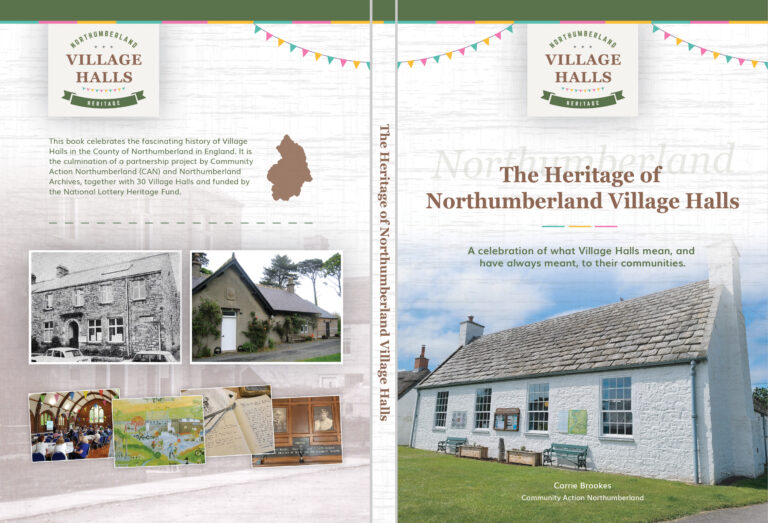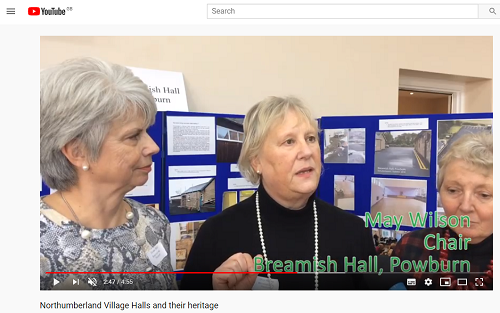Village Halls Heritage Project
Northumberland’s 200+ Village Halls have for many years been the main venue for communal activities in their villages and hamlets and are central to the shared memories of generations of local people. Many are historically significant buildings with previous lives as village schools, reading rooms, chapels, mechanics institutes, industrial buildings, miners institutes, WW1 barracks etc.
The Village Halls Heritage Website is the culmination of the Northumberland Village Halls Heritage project which started life in 2019 thanks to funding from the National Heritage Lottery Fund given to Community Action Northumberland.
The project worked with 30 village halls to preserve, record and share the heritage of their halls for the benefit of the rural communities which they serve. Northumberland Archives were key partners, providing training to volunteers and expert advice on archiving material.
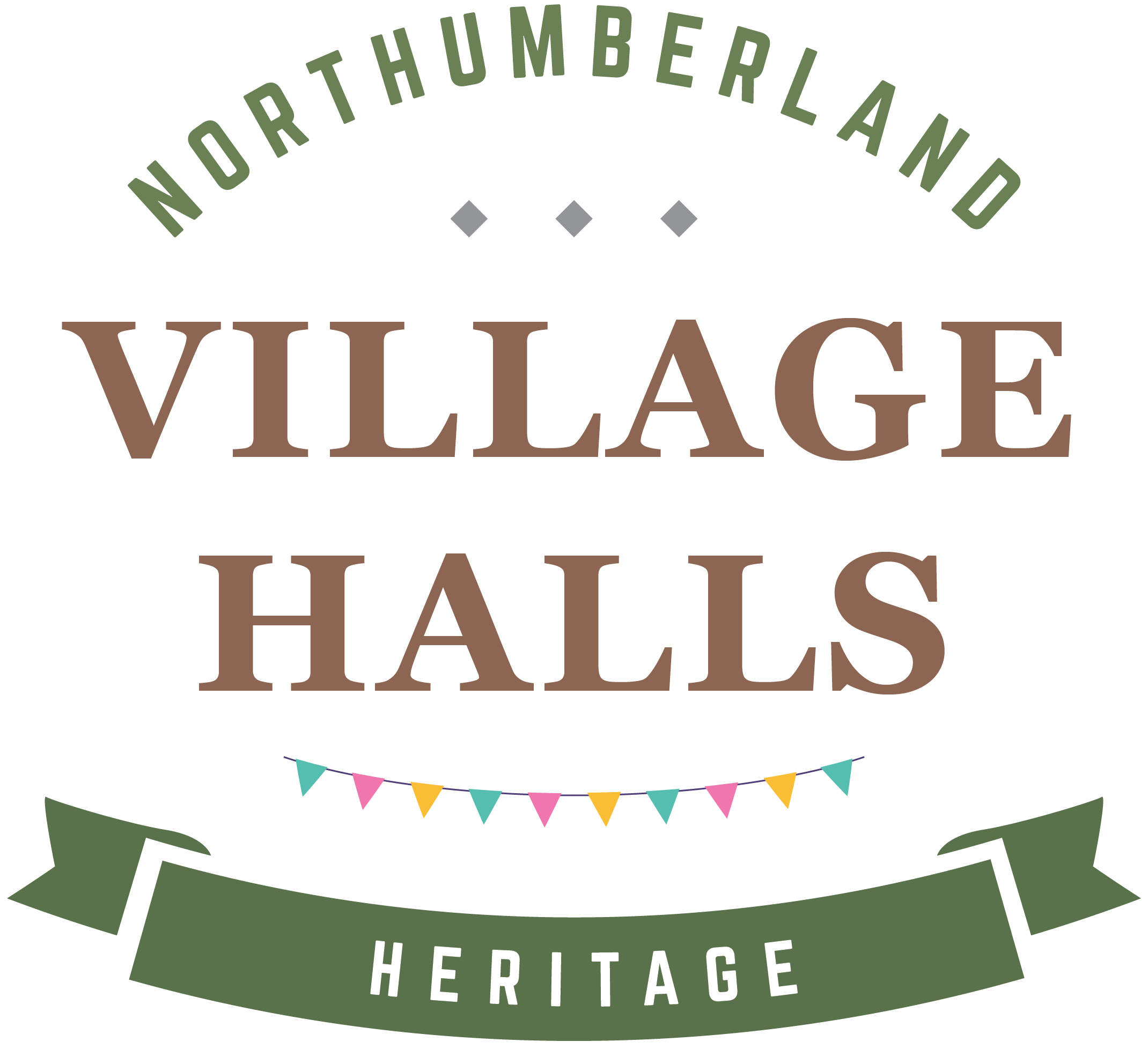
We interpreted the findings of this work by:
- Mounting an exhibition and taking it on a tour around village halls
- Creating a book & website
- Providing participating village halls with resources for local use
Why Village Halls Matter
Village halls are often the only place to meet within a rural community, providing vital and diverse support to improve quality of life, particularly for those who are least able to travel. Many rural services are under threat and increasingly village halls are also housing essential services such as shops, post offices, preschools, public toilets and phones and even GP surgeries. These buildings are all charities and have been run for generations by local volunteers whose dedication demonstrates how important these facilities are felt to be.
Those volunteers and their communities are incredibly proud of the history and heritage of the buildings they run and are knowledgeable about the part they have played over the years. Every building is different and reflects the nature of the community it serves. Most started out with a different purpose in the past and each took on life as a village hall at a different time in history.
Examples of previous uses of local halls
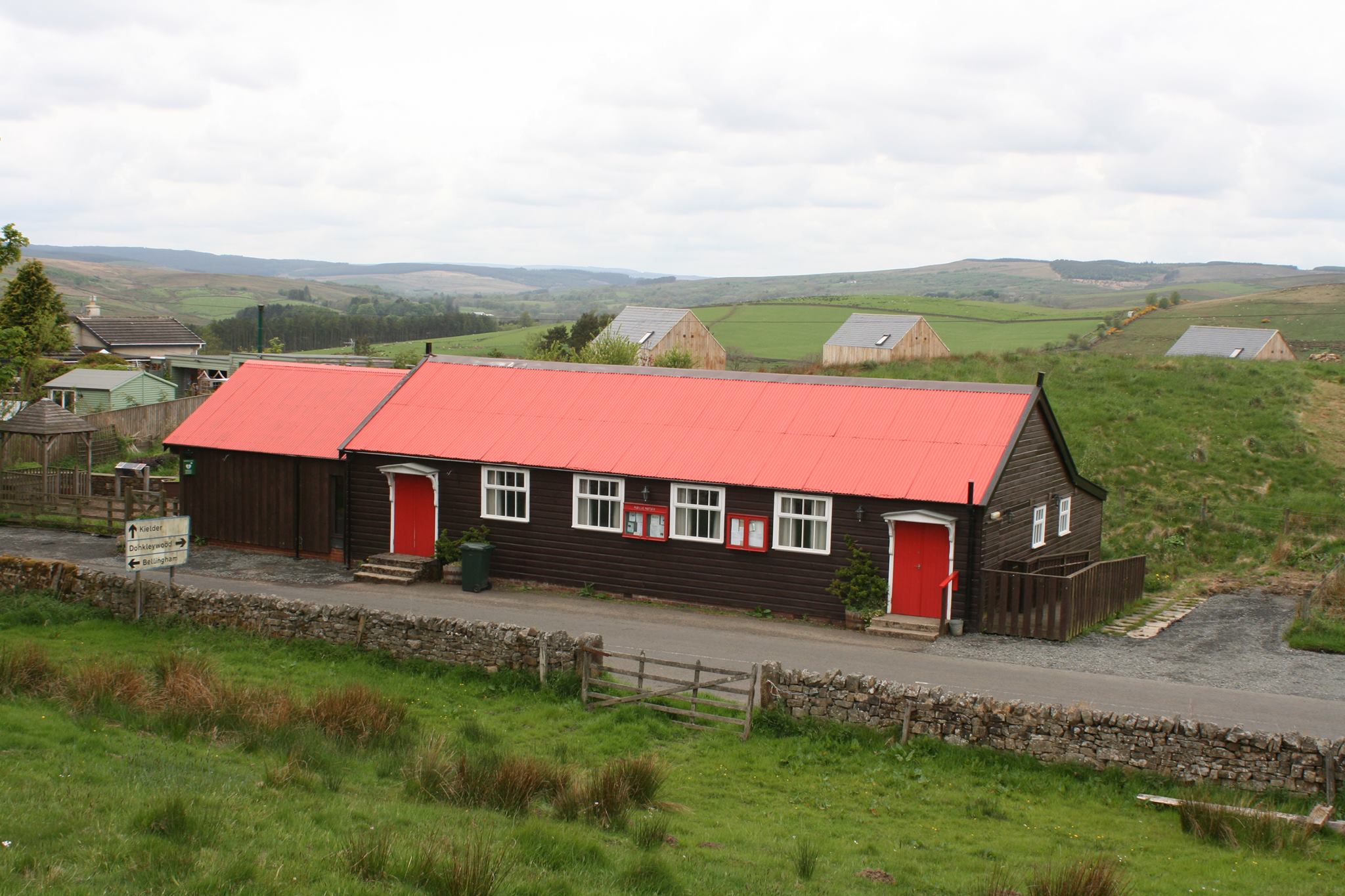
For instance Hindmarsh Hall, Alnmouth started life as a corn exchange in the 18th Century when the village was an important port, Boulmer village hall was originally a World War 1 barracks, Linton and Pegswood were built and run by the coal mining industry to provide recreational facilities for colliery workers and their families, Ninebanks village hall was a reading room for workers in the lead mining industry, Cambo village hall was formerly the local school and was given to the community as a village hall by the Trevellyan family, owners of the Wallington Estate. Numerous halls started out as reading rooms or mechanics institutes, or were given to the local community by landed gentry wishing to support workers on their estates.
The existing knowledge and enthusiasm about this history was evident at our 2019 Village Hall's Week Celebration where 20 village halls displayed information about the history of their halls. A brief video of this event, in which village halls trustees discuss the history of their particular hall can be seen at: https://www.youtube.com/watch?v=iRlwd5czeGk
Ongoing Resources
Join our Facebook group and share your memories
Please join our Facebook group to share your stories and photos of Northumberland village halls.
Heritage Toolkit for Village Halls
This toolkit was created for the project to support village halls in researching and preserving their heritage. All copyright belongs to CAN.
Heritage newsletters
We sent quarterly newsletters to anyone interested in the heritage of village halls in Northumberland.
View the previous editions:
Contact details
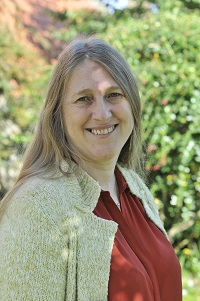
Julia Plinston at CAN managed the project, contact her at juliaplinston@ca-north.org.uk or call 01670 500811.
![]()
This project is supported by The National Lottery Heritage Fund.
